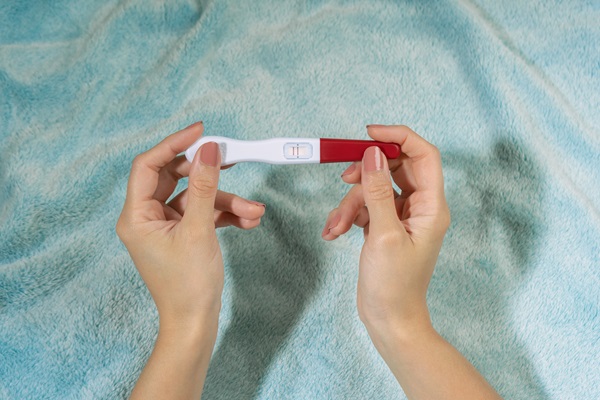Pregnancy Testing: Frequently Asked Questions

Pregnancy testing gives patients certainty about whether they are expecting. If unsure, an urgent care or primary care provider can administer these tests with a smaller margin of error than over-the-counter pregnancy tests. Although the process is straightforward, it is normal to have questions heading into the appointment. Exploring the answers to some of the most frequently asked questions about pregnancy testing can help you feel more prepared.
How do urine pregnancy tests work?
Urine tests are the most common type of pregnancy testing due to convenience. As the name suggests, it involves urinating on a stick or dipping a stick into a sample of urine. The stick will test for levels of a pregnancy hormone called human chorionic gonadotrophin (hCG).
Patients can perform a urine pregnancy test at home or visit an urgent care or primary care clinic to have one administered. There is little room for error with either, but many prefer the peace of mind that comes with having a trained healthcare provider perform the test.
What are my other options for pregnancy testing?
Blood pregnancy testing is another option, but one that can only be performed by a healthcare provider. The provider will draw a blood sample from the arm and then test it for levels of hCG. This method is recommended for patients receiving fertility treatments who need test results as early as possible.
The least common option for pregnancy testing is an ultrasound. A urine or blood test will usually deliver a clear enough result. However, some cases — such as a very late period that continues to deliver a negative test result — require the healthcare provider to determine whether there is an embryo, fetus, or a condition like a fibroid or a cyst delaying one’s period.
When should you take a pregnancy test?
The general recommendation is to take a pregnancy test on the first day of one’s missed period. However, urine tests may yield a positive result ten days after conception, while blood tests can provide one as early as seven days after conception. Medical News Today states that the average period occurs about 14 to 16 days after ovulation, the only phase of one’s cycle when a baby can be conceived.
What if you have pregnancy symptoms but test negative?
It is possible to have pregnancy symptoms and have a urine pregnancy test return negative. This can mean one of three things:
- The test was inaccurate due to human error, testing too early, or being overhydrated.
- A fibroid or cyst is causing a delayed period.
- The symptoms of a late period are mimicking pregnancy.
A late period shares some of the symptoms of pregnancy, such as sore breasts, mood changes, and fatigue. For clarity, try testing again in a few days or visit an urgent care or primary care clinic for a blood test or ultrasound.
Visit a healthcare provider for accurate pregnancy testing
When testing at home delivers mixed results, visit Viva Health Clinic for accurate pregnancy testing in Round Rock. We can help you choose a test and administer it, helping you feel comfortable and confident regardless of whether you are planning for a baby. Contact our team today at (512) 243-5872 to learn more.
Request an appointment here: https://www.vivahealthclinictx.com or call Viva Health Clinic at (512) 243-5872 for an appointment in our Round Rock office.
Check out what others are saying about our services on Yelp: Pregnancy Testing in Round Rock, TX.
Related Posts
High cholesterol can lead to serious health consequences such as heart attack and stroke. Therefore, one of the most important things you can do for your health is to get your cholesterol under control. Luckily, there are steps you can take right now not only to begin lowering your cholesterol but also to improve your…
A pap smear, or pap test, is a common and important procedure used to screen for cervical cancer and detect abnormal cells in the cervix. Regular pap smears are a critical part of preventive healthcare for women, typically recommended starting at the age of 21. Understanding what happens during a pap smear can help alleviate…
Blood work is an essential tool primary care providers use to assess overall health, diagnose conditions, and monitor ongoing treatment. Routine blood tests offer valuable insights into the body's functions, helping detect potential health issues early. Understanding the different types of blood work and their purposes can help clarify why PCP recommend these tests during…
Preventative care helps safeguard your health by providing early detection or interception of serious conditions or diseases. Maintaining a relationship with a preventative care practitioner can help keep you healthy year-round. Learning their role and how they stack against diagnostic care can help you determine whether consulting this type of practitioner is necessary.Preventative care practitioners…
